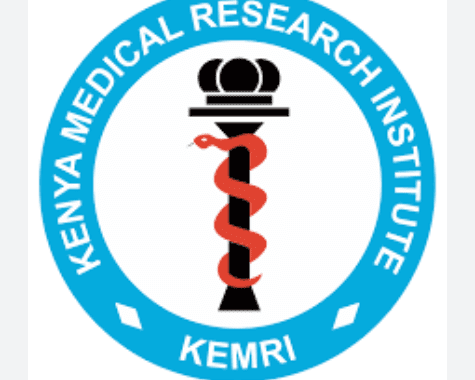How To Get Pregnant Fast: 6 Proven Ways

Do you want to know how to get pregnant fast?
The most important thing for any woman trying to get pregnant is to know her body. Taking good care of your body is a good step in boosting your fertility. Many women have questions on how to conceive, especially if there is an underlying condition.
Here are 6 Proven ways on how to get pregnant fast
1.Keep a record of your menstrual cycle and keenly monitor ovulation
Some women have regular periods while others have irregular periods. When you keep a record of your periods, you are in a better position to understand your body.
Those with regular periods can record the dates of the month they experience their periods, and how long they experience their periods. That way, they can understand when they will be ovulating and increase the chances to conceive.
Those with irregular periods can also keep a record of how their periods’ lengths vary from one month to another. They will also be in a better position to predict when they will be ovulating and this might be the best time to conceive.
It’s easier to monitor your ovulation, especially when you have regular periods. Those with regular periods ovulate two weeks before their next period.
For those with irregular periods, it is a bit hard to predict the time of ovulation. Research shows that ovulation occurs 12 to 16 days before starting to experience the next period
2.Eat healthy foods and avoid smoking and drinking habits
There are no specific foods that are part of how to get pregnant fast; however, it is advisable to eat a variety of known healthy foods to prepare one’s body for pregnancy. The body will store critical nutrients such as proteins, iron, and calcium, which are important when one is pregnant. Most of these nutrients are said to be found in a variety of fruits, dairy products, vegetables, and proteins.
One is advised not to eat fish with high mercury levels because mercury can accumulate in a woman’s bloodstream, which may affect a baby’s development. Mercury can also be one of the causes of both men’s and women’s fertility issues.
Smoking and a lot of drinking also lead to infertility in both men and women. For women, smoking causes aging of their ovaries, which leads to depletion of egg supply prematurely. Women should also avoid being passive smokers since it might affect their fertility unknowingly.
3.Have sex every day during ovulation
If you are trying to get pregnant, you are advised to have sex every single day during the fertile period. It is because this is the best time to conceive. Sex positions do not affect the movement of sperms. Any sex position can work and can have you pregnant.
4.Consider not doing exercise that makes you strain, and strive to attain a healthy body weight
When a woman is active most of the days, it prepares the body for any pregnancy demand and labor. It is also associated with reduced risks of fertility issues. However, doing extensive exercise might cause problems with your ovulation. There is a disturbance in a woman’s menstrual cycle when she does heavy exercises; hence, one is advised to stop ‘over’ exercising if she wants to get pregnant.
Also, it is hard for a woman to conceive when she is overweight or underweight. Having too many fats in the body produces a lot of estrogens that may interfere with the ovulation process. An overweight woman might take twice as long as a woman with normal weight to conceive while an underweight woman might take four times as long as a woman considered to be of normal weight to conceive. Also, underweight women with a body mass index (BMI) of less than 18 are likely not to ovulate, and this may hinder the women from being pregnant.
5.Consider taking vitamins
Any woman trying to get pregnant is advised to take prenatal vitamins before they become pregnant. One can also try taking multivitamins as long as it contains low micrograms of folic acid as advised by their doctor. Multivitamins contain vitamins important in preventing birth defects in baby’s brain and spine. Folic acid is highly advisable since it helps in brain development 3-4 weeks after conception, and this is before the woman is aware they are expecting.
6.Get to know of age-related fertility issues
As a woman gets older, they have a high risk of having health problems such as fibroids, endometriosis, and blockage of fallopian tubes that lead to infertility. Also, fertility decreases because of the age-related changes in the ovaries that lead to reduced production of both quantity and quality of eggs. Fertility starts declining sharply after the age of 37 and might fully decline at 40; hence, if one is trying to get pregnant at this age, it might take a little longer to get pregnant.

 Uninspected Meat Sold In Embu Causes Alarm
Uninspected Meat Sold In Embu Causes Alarm  No Condoms For Teenagers, Let Them Abstain; Susan Nakhumicha, Health CS Says
No Condoms For Teenagers, Let Them Abstain; Susan Nakhumicha, Health CS Says  KEMRI; A Dangerous Malaria Vector Discovered In Kenya
KEMRI; A Dangerous Malaria Vector Discovered In Kenya  Natalie Githinji Opens Up On Her Near Death Encounter In Her Endometriosis Journey
Natalie Githinji Opens Up On Her Near Death Encounter In Her Endometriosis Journey  There Is No Swine Flu Outbreak In Nakuru; Ministry Of Health Confirms
There Is No Swine Flu Outbreak In Nakuru; Ministry Of Health Confirms  Swine Flu Outbreak In Nakuru County Leaves 1 Dead And 8 Hospitalized
Swine Flu Outbreak In Nakuru County Leaves 1 Dead And 8 Hospitalized